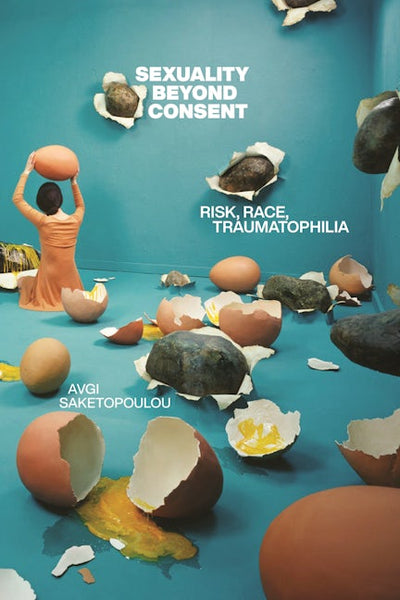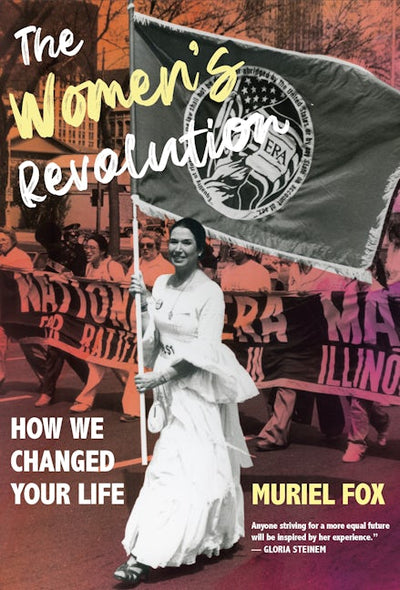You may also like
Sexuality Beyond Consent
Regular price $32.00 Save $-32.00Radical alternatives to consent and trauma
Arguing that we have become culturally obsessed with healing trauma, Sexuality Beyond Consent calls attention to what traumatized subjects do with their pain. The erotics of racism offers a paradigmatic example of how what is proximal to violation may become an unexpected site of flourishing. Central to the transformational possibilities of trauma is a queer form of consent, limit consent, that is not about guarding the self but about risking experience. Saketopoulou thereby shows why sexualities beyond consent may be worth risking-and how risk can solicit the future.
Moving between clinical and cultural case studies, Saketopoulou takes up theatrical and cinematic works such as Slave Play and The Night Porter, to chart how trauma and sexuality join forces to surge through the aesthetic domain. Putting the psychoanalytic theory of Jean Laplanche in conversation with queer of color critique, performance studies, and philosophy, Sexuality Beyond Consent proposes that enduring the strange in ourselves, not to master trauma but to rub up against it, can open us up to encounters with opacity. The book concludes by theorizing currents of sadism that, when pursued ethically, can animate unique forms of interpersonal and social care.

Deviant Matter
Regular price $30.00 Save $-30.00How deviant materials figure resistance
Yeast ferments, gelatin jiggles, drugs and alcohol froth and bubble, and flesh from animals and plants actively molds and rots. These materials morph through multiple states and phases, and their movement is imbued with a liveliness that is suggestive of volition.
Deviant Matter examines four aesthetic and material categories— gelatinousness, fermentation, putrefaction, and intoxication—to theorize how the modern state seeks to manage deviant populations across multiple scales, from the level of the single cell up to the affective and aesthetic imperatives of the state and its bureaucratic projects. Kyla Wazana Tompkins deploys a new materialist engagement with the history of race and queer life, making an argument for queer of color method as political and disciplinary critique. Deviant Matter delves into a vast archive that includes nineteenth-century medical and scientific writing; newspaper comic strips and early film; the Food and Drug Act of 1906; the literature of Martin Delany, Louisa May Alcott and Herman Melville; and twenty-first century queer minoritarian video, installation, and performance art.
Drawing from the genealogy of Black feminist and queer of color critique, in Deviant Matter rot, jelly, ferment and intoxicating materials serve as figures for thinking about how matter, art, politics, and affect can be read across multiple scales, ranging from the intimate and molecular everyday to the vast print production and inner workings of the state. Tompkins demonstrates that we are moved by our encounters with the materials in Deviant Matter, producing feelings and sensations that she links to a system of social value where these sensations come to be understood as productive, exciting, disgusting, intoxicating, or even hallucinatory. Moving through multiple states and phase changes, falling apart and reforming again, ferment, rot, intoxicants and jelly energize and choreograph both themselves and human behavior. At the same time, these materialities come to signify exactly those populations whose energy escapes the extractive efforts of capitalism and the state.

The Women's Revolution
Regular price $28.00 Save $-28.00A rare first-person account of the women's movement
A comprehensive, indexed memoir about the Second Wave women’s movement by the cofounder of the National Organization for Women (NOW). Muriel Fox offers rare, firsthand stories of 29 women and one man, including Betty Freidan, but also many who have not previously been recognized for their contributions.
As NOW's public relations director, Fox orchestrated nationwide outreach. She was NOW's vice president, then chair of the board, then chaired the National Advisory Committee. As Betty Friedan's main lieutenant and director of operations, Fox drafted numerous letters sent by NOW under Friedan's signature to government officials demanding faster action to reduce sex discrimination, including a letter that helped persuade President Lyndon Johnson to add gender to Affirmative Action and open opportunities for millions of women.
Unlike books relying on secondary sources, Fox's memoir is built mainly from her own Feminism Files containing hundreds of letters, clippings, notes, and photographs that she archived.

The Great Miscalculation
Regular price $27.95 Save $-27.95Distinguished Favorite, 2025 NYC Big Book Award: Nonfiction
How an engineering crisis threatened a career, a building, and the lives of countless New Yorkers
The Citicorp Center, a fifty-nine-story skyscraper built in 1977, immediately became one of the most recognizable features on the New York City skyline with its distinctive inclined roof and oddly placed support columns. Designed by one of the top structural engineers in the field, William LeMessurier, the tower would become the crown jewel of his professional career; In essence, he created a skyscraper on stilts. The building was a modern marvel – until it was revealed that it had a 1 in 16 chance of collapse.
The Great Miscalculation tells the riveting story of LeMessurier’s discovery of a fatal flaw in his building’s design and his decision to blow the whistle on himself, putting his reputation on the line in a race to save this iconic skyscraper. With hurricane season rapidly approaching, the structural design flaws of the Citicorp Tower posed a menacing danger. Meanwhile, the economic hardships and political turmoil of 1970s New York only compounded the obstacles to a massively expensive, never-before-seen structural redesign in the heart of downtown Manhattan.
A fascinating piece of overlooked New York City history, The Great Miscalculation tells the gripping narrative of a catastrophe averted in the nick of time.

The Psychology of Tort Law
Regular price $44.00 Save $-44.00Tort law regulates most human activities: from driving a car to using consumer products to providing or receiving medical care. Injuries caused by dog bites, slips and falls, fender benders, bridge collapses, adverse reactions to a medication, bar fights, oil spills, and more all implicate the law of torts. The rules and procedures by which tort cases are resolved engage deeply-held intuitions about justice, causation, intentionality, and the obligations that we owe to one another. Tort rules and procedures also generate significant controversy—most visibly in political debates over tort reform.
The Psychology of Tort Law explores tort law through the lens of psychological science. Drawing on a wealth of psychological research and their own experiences teaching and researching tort law, Jennifer K. Robbennolt and Valerie P. Hans examine the psychological assumptions that underlie doctrinal rules. They explore how tort law influences the behavior and decision-making of potential plaintiffs and defendants, examining how doctors and patients, drivers, manufacturers and purchasers of products, property owners, and others make decisions against the backdrop of tort law. They show how the judges and jurors who decide tort claims are influenced by psychological phenomena in deciding cases. And they reveal how plaintiffs, defendants, and their attorneys resolve tort disputes in the shadow of tort law.
Robbennolt and Hans here shed fascinating light on the tort system, and on the psychological dynamics which undergird its functioning.

Unsettled
Regular price $30.00 Save $-30.00Examines how young Jewish Americans’ fundamentally Jewish values have led them to organize in solidarity with Palestinians
Unsettled digs into the experiences of young Jewish Americans who engage with the Palestine solidarity movement and challenge the staunch pro-Israel stance of mainstream Jewish American institutions. The book explores how these activists address Israeli government policies of occupation and apartheid, and seek to transform American Jewish institutional support for Israel.
Author Oren Kroll-Zeldin identifies three key social movement strategies employed by these activists: targeting mainstream Jewish American institutions, participating in co-resistance efforts in Palestine/Israel, and engaging in Boycott, Divestment, and Sanctions (BDS) campaigns. He argues that these young people perceive their commitment to ending the occupation and Israeli apartheid as a Jewish value, deeply rooted in the changing dynamics of Jewish life in the twenty-first century. By associating social justice activism with Jewish traditions and values, these activists establish a connection between their Jewishness and their pursuit of justice for Palestinians.
In a time of internal Jewish tensions and uncertainty about peace prospects between Palestine and Israel, the book provides hope that the efforts of these young Jews in the United States are pushing the political pendulum in a new direction, potentially leading to a more balanced and nuanced conversation.







